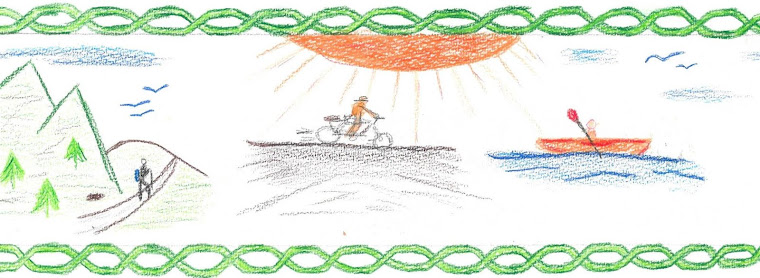FOR AN UPDATED AND REVISED VERSION, GO TO THIS LINK
6:1 Rather than the usual and customary “This is the word that came to Micah” we have a call to “Hear”. How much is this opening verse influenced by, an allusion to, and/or a midrash on Deuteronomy 6:4 and similar passages? Does it make any difference that early Judaism tends to be an aural faith? Why plead before the mountains and hills?
6:2 Are the mountains and foundations
of the earth serving as witnesses?
Judges? It is usually the people
of Israel complaining to and about the LORD.
Now the LORD is complaining about the people. Am I mistaken, or does this verse not seem to
follow from the previous one?
6:3 What has the LORD
done? Has the LORD wearied the people?
6:4 It seems God is
recounting Salvation history. I like the
fact that the LORD mentions Miriam along with Moses and Aaron. Exactly what are “the saving acts of the
LORD” and how does one “know” them?
6:5 What did King Balak
devise? What did Balam answer him? What happened from Shittim to Gilgal?
6:6-7 This reads like a
response to the indictment in 2-5, yet there is no narrative transition. Are these at all rhetorical questions?
6:8 Who is speaking in this
verse, Micah or the LORD? According to
my math, doing justice, loving kindness and walking humbly with God is equal to
or greater than all the genuflections, burnt offerings, or human sacrifices we could
possibly render, but it does not pay the bills.
15:1 Are these also rhetorical questions? What are the expected answers?
15:1-5 If taken literally,
these verses seem to suggest that no one may abide in the LORD’s tent. No one may dwell on the LORD’s holy
hill. Does bringing these verses into
conversation with Micah 8 offer any additional insight? Why are these virtues spelled out rather than
appealing to the Ten Commandments?
1:18 What is the message about the cross? What is the meaning of “foolishness”
1:19 As an amateur
philosopher, I find this verse a little disconcerting. Maybe we need to deconstruct it and explore
its deep structure. By the way, where is
this written?
1:20 Are these rhetorical
questions? Whom might Paul have in mind?
1:21 So while human wisdom
will be destroyed, it is alright for God to be wise?
1:22 So “wisdom” is being
used as a metaphor or code word for “Greeks”?
What about Christians who centuries later would refer to Plato as a
proto-Christian? What sort of “signs” do
Jews demand?
1:23 How is the
proclamation of Christ crucified a “stumbling block” to Jews? How is the proclamation of Christ crucified
“foolishness” to Gentiles?
1:24 Here we encounter call
language again. What does it mean to
equate “the power of God” and “the wisdom of God” with Christ and vice versa?
1:26-29 This might have
preached in Paul’s day, but what about white, upper middle class, Christian
America? This might preach in an economically
distressed, immigrant, or even middle class congregation, but in Old First
Church? Why does Paul seem to equate
wisdom with power and nobility?
1:30 Wisdom, righteousness,
sanctification and redemption are not necessarily common everyday words. How can a teacher or preacher unpack them? While Paul started out in this passage as
apparently antagonistic toward wisdom, he concludes by claiming that Christ Jesus
is the wisdom from God. What gives? How
might Paul’s “wisdom from God” compare and/or contrast with the Fourth Gospel’s
“word/logos”?
1:31 Where is it so written
and how does that writing’s context inform this passage?
5:1 Why is “crowds” plural? What mountain did Jesus go up? This is such a familiar passage, how can we hear it again but as if for the first time? What do we call the large section of teaching which this begins? How many sections of teaching material are there in Matthew?
5:3 In this and in the
following eight verses, what does it mean to be ‘blessed”? What does it mean to
be poor in spirit? Who are the poor in
spirit today? What is the kingdom of God?
5:5 What does it mean to be
meek?
5:6 Might this at all
inform our understanding of the Eucharist?
5:7 What does it mean to be
merciful?
5:8 What does it mean to be
pure in heart? What about the
prohibition about looking upon the face of God?
5:9 You may want to
consider “Peacemaking: The Believer’s Calling” adopted by the 1980 UPCUSA GA.
5:10 Why might “the kingdom
of heaven” appear twice (see 5:3)?
5:11 While 5:3-12 were indirect
and hypothetical, this verse is direct and personal.
